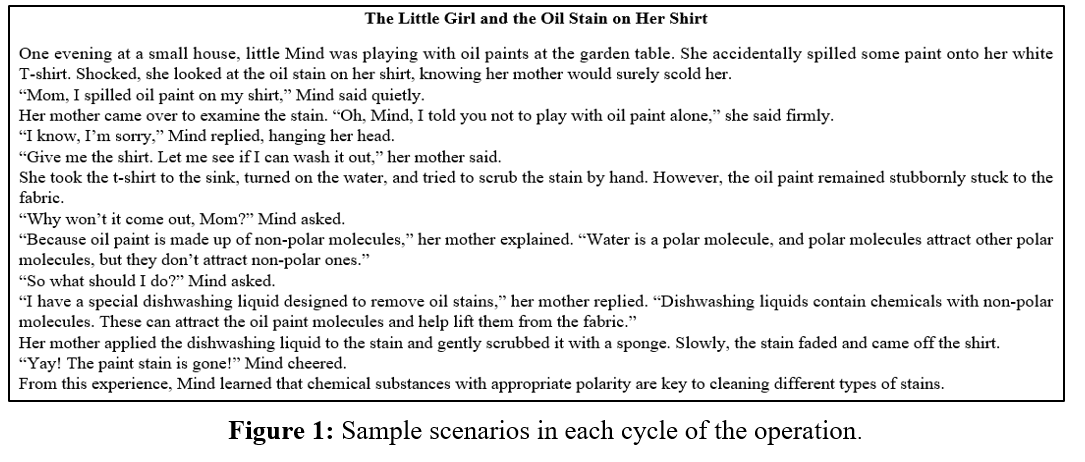Enhancing Scientific Argumentation Skills in Chemistry on the Topic of Chemical Bonding through Argument-Driven Inquiry of Grade-10 Students
Main Article Content
Abstract
This research aimed to develop the scientific argumentation skills of Grade-10 students on the topic of chemical bonding through argument-driven inquiry. The action research study was conducted with the target group of 10 grade-10 students from Mueang Mahawichanukool School, Maha Sarakham Province. The participants were enrolled in the first semester of the 2024 academic year. These research tools were: 1) Argument-driven inquiry lesson plans on the topic of chemical bonding, consisting of 11 plans with duration time of 22 hours, 2) Scientific argumentation skills test included three questions from three scenarios for measuring student’s argumentation skills after each operational cycle. The test has IOC validity ranging from 0.89 to 1.00 and reliability coefficient of 0.8 and 3) Observation form for scientific argumentation behavior observation. Quantitative data were analyzed by mean ( ), standard deviation (S.D.), and percentage (%). Qualitative data was analyzed through content analysis. The research results found that the first operational cycle, two students (20%) had scientific argumentation skills at a good level, five students (50%) at a moderate level, and three students (30%) at a low level. In the second operational cycle, two students (20%) had scientific argumentation skills at a very good level, two students (20%) at a good level, four students (40%) at a moderate level, one student (10%) at a low level, and one student (10%) at a very low level. In the third operational cycle, three students (30%) had scientific argumentation skills at a very good level, one student (10%) at a good level, and six students (60%) at a moderate level. Students exhibited an increased level of scientific argumentation skills, with the observed progression across all components of argumentation.
Article Details

This work is licensed under a Creative Commons Attribution-NonCommercial-NoDerivatives 4.0 International License.
References
Amelia, D. R., Asrial & Effendi-Hasibuan, M. H. (2020). The Effectiveness of Argument-Driven Inquiry in Promoting Students’ Argumentation Skills About Colloids. Advances in Engineering Research, 205(1), 328-335.
Amielia, S. D., Suciati & Maridi. (2018).Enhancing Students’ Argumentation Skills Using an Argument Driven Inquiry-Based Module. Journal of Education and Learning (Edulearn), 12(3), 464-471.
Celep, N. D. (2015). The Effects of Argument-Driven Inquiry Instructional Model on 10th Grade Students’ Understanding of Gases Concepts (Doctoral Dissertation). Türkiye: Middle East Technical University.
Erduran, S. (2019). Argumentation in Chemistry Education: Research, Policy, and Practice. Retrieved January 2024 from https://doi.org/10.1039/9781788012645.
Janhom, P., & Jantrasee, R. (2019). Grade 11 Students’ Scientific Argumentation Learned Using Argument-Driven Inquiry in Chemistry Laboratory. Journal of Learning Innovation and Technology, 5(1), 1-36.
Jantarakantee, E. (2016). Instruction for Promoting Argumentation Skill in Science Classroom. Journal of Yala Rajabhat University, 11(1), 217-232.
Kamart, P. & Srisa-ard, O. W. (2022). Implementing Argument-Driven Inquiry Approach for Developing Grade 12 Students’ Ability to Enhance Scientific Argumentation on The Topic of Polymer. Rajabhat Maha Sarakham University Journal, 16(3), 76-87.
Lin, S. & Mintzes, J. J. (2010). Learning Argumentation Skills Through Instruction in Sociocentric Issues: The Effect of Ability Level. International Journal of Science and Mathematics Education, 8(6), 993-1017.
Maneetup, S., & Harnsoongnoen, S. (2023). The Effect of Open Learning on Science Argumentation Skills Among Grade 11 Students. Journal of Mahasarakham Rajabhat University, 17(1), 78-88.
Ministry of Education. (2008). Basic education core curriculum B.E. 2551. Thailand: Ministry of Education.
Mueang Mahawichanukool School. (2022. Self-assessment report (SAR) for the academic year 2022 Thailand.
OECD. (2021). Are 15-Year-Olds Prepared to Deal with Fake News and Misinformation. PISA in Focus, (113), Paris: OECD Publishing.
Office of the Basic Education Commission. (2022). Basic Education Development Plan B.E. 2566 –2570. Retrieved January, 2024 from https://www.obec.go.th /archives/813787.
Özelma & Seyhan, H. G. (2022). Effect of Argumentation Based Learning on Science Achievement and Argumentation Willingness: The Topic of "Particulate Nature of Matter". Bulletin of Education and Research, 44(2), 31-50.
Phararanat, W., & Nuangchalerm, P. (2018). Reasoned Argumentation: A Skill for Surviving in the 21St Century. Journal of Humanities and Social Sciences Mahasarakham University, 37(2), 174-181.
Rusmini, R, Suyono, & Agustini, R. (2021) Profile of Argumentation Ability of Undergraduate Students in Chemistry Education Based on Non-Routine Problems. E3s web of conferences, 328(7), 06007.
Sampson, V. & Walker, J. P. (2012). Argument-Driven Inquiry as a Way to Help Undergraduate Students Write to Learn by Learning to Write in Chemistry. International Journal of Science Education, 34(10), 443-1485.
Songsil, W. & Faikhamta, c. (2017). Grade 10 Students’ Scientific Argumentation in Socio-Scientific Issues. Rajabhat Maha Sarakham University Journal, 11(3), 175-184.
Suwantrai, T. & Sangpradit, T. (2023). Development of 8th Grade Students’ Scientific Argumentation Skills Through Argument-Driven Inquiry with Higher Order Questions in Energy Resources Topic. Silpakorn Educational Research Journal, 15(1), 282-298.
Tongprapai, K., Pitiporntapin, S., Shinnasin, K. & Jamjai, O. (2016). Development of Grade 8 Students’ Argumentation Skill in Nutrients and Life Unit Using Socio-Scientific Issue (SSI)–Based Teaching. Journal of Research Unit on Science, Technology and Environment for Learning, 7(1), 48-61.
Walker, J. P., & Sampson, V. (2013). Learning to Argue and Arguing to Learn: Argument-Driven Inquiry as a Way to Help Undergraduate Chemistry Students Learn How to Construct Arguments and Engage in Argumentation During a Laboratory Course. Journal of Research in Science Teaching, 50(5), 561–596.
William, A. S., & Millwood, K. A. (2005). The Quality of Students’ Use of Evidence in Written Scientific Explanations. Cognition and Instruction, 23(1), 23–55.
Wu Y. T. & Tsai C. C. (2007). High School Students’ Informal Reasoning on a Socio‐scientific Issue: Qualitative and quantitative analyses. International Journal of Science Education, 29 (9), 1163-1187.


